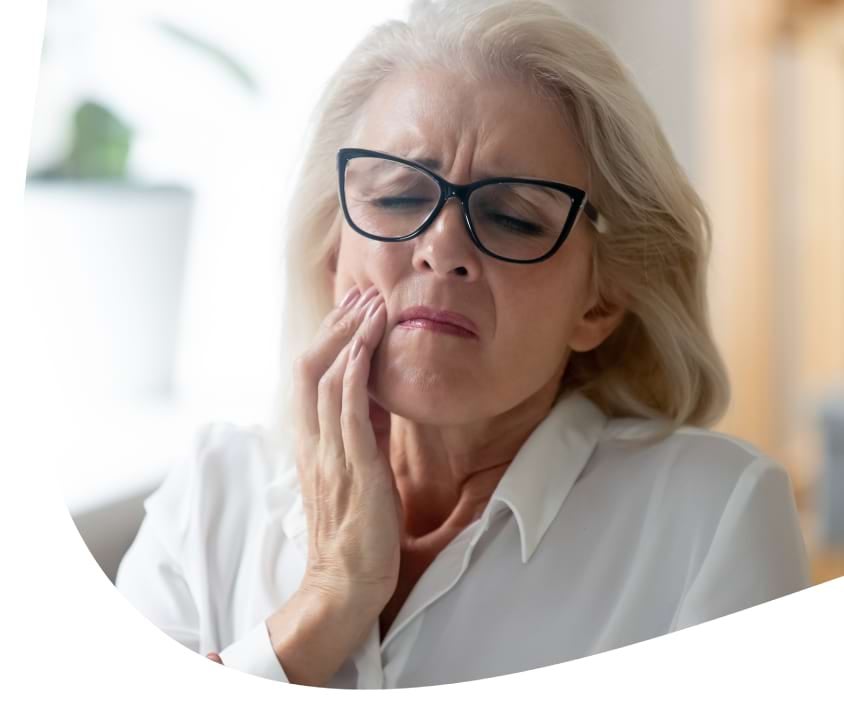This article will take you 8 minutes to read.
Mouth ulcers can be extremely uncomfortable and often cause severe pain. In extreme cases, they may significantly hinder eating. However, most ulcers are completely harmless and typically heal on their own within a few days.
What types of ulcers are there?
Mouth ulcers, which affect about 2-10% of the population, particularly children and adolescents, vary in appearance and size. These small white swellings or sore spots with red borders, known as aphthae, should not be confused with herpes. They frequently recur, forming primarily on the tongue and gums. Aphthae produce a yellowish or white fibrin film with a red border, which the body uses to isolate and manage the sores. The red border indicates increased blood flow due to inflammation. Raised and fluid-filled sores are also referred to as blisters or bullae. While aphthae are the most common oral condition affecting the tongue and gums, they rarely indicate serious diseases.
Possible causes of ulcers
Cold sores on the lip, primarily caused by the herpes simplex virus, are among the most recognized causes of mouth sores. However, other viruses can also cause painful sores in the mouth.
Bacterial infections can also cause mouth sores, triggering pus-filled abscesses or even widespread inflammation known as cellulitis, particularly when there is an overgrowth of organisms already present or newly introduced in the mouth.
The fungus Candida albicans is typically present in the mouth but can grow rapidly due to certain medications.
Injury or irritation from a broken tooth or poorly fitting dentures can lead to the development of blisters or ulcers. Certain foods may irritate the oral mucosa or trigger allergic reactions. Tobacco products, containing natural irritants, are also likely contributors. Common medications that can cause mouth sores include specific chemotherapy drugs and radiation therapy, both used in cancer treatment. Additionally, systemic diseases that impact both the mouth and other body parts can be culprits. Risk factors that may aggravate the oral mucosa include genetic predispositions, specific foods, stress, insufficient sleep, smoking, allergies, and deficiencies in iron, zinc, and vitamins. Dry mouth, resulting from certain medical conditions, also increases the likelihood of mouth sores.
Tips for treating mouth ulcers
In most instances, mouth blisters heal on their own within about two weeks without requiring treatment. During this period, it's best to avoid additional irritants such as coarse or hot foods and carbonated drinks. However, if you experience a fever, skin blisters, eye infections, have a weakened immune system, or suffer from severe pain and difficulties, it is advisable to consult a doctor.
Maintaining optimal oral hygiene is crucial for keeping harmful bacteria away from irritated areas in the mouth. The cornerstone of good dental care includes brushing your teeth twice daily with fluoride toothpaste, and using a soft-bristled toothbrush to avoid further irritation. Daily flossing between your teeth and around any implants is also essential. Additionally, for mouth ulcers, it is highly recommended to rinse your mouth daily with an alcohol-free mouthwash to help promote healing and prevent infection.
Home remedies that you might already have include natural aids like tea tree oil, aloe vera, rhubarb, calendula, and chamomile extracts, along with baking soda. For the baking soda, simply mix it with water to create a paste and apply it to the affected area. Additionally, ice cubes wrapped in a paper towel can provide temporary pain relief.



